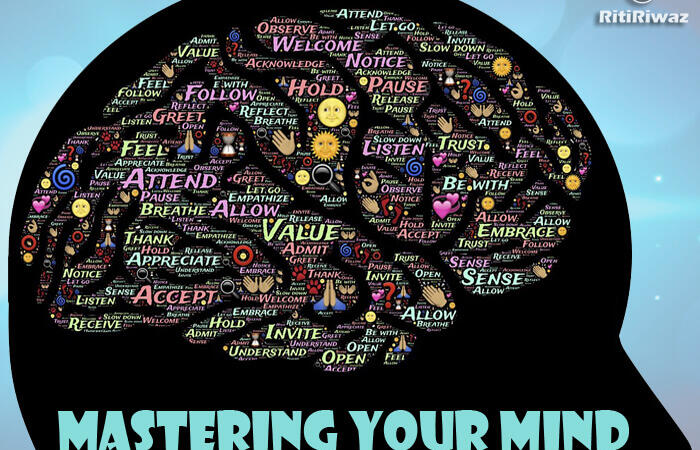Life and Relationship

Interpersonal relationships are social associations, connections, or affiliations between two or more people. They vary in differing levels of intimacy and sharing, implying the discovery or establishment of common ground, and maybe centered around something(s) shared in common. The study of relationships is of concern to sociology, psychology, and anthropology. Dating and marriage are different than it was twenty years ago.
In today’s society, more than 50% of all marriages fail for one reason or another. Just thinking about that makes “commitment” seem scary. It seems that when relationships are faced with challenges, people quit trying. Dating is more like a marathon, trying to date as many people as possible, instead of taking time to get to know someone at a deeper level.
For married couples, divorce is not biased. Whether married for thirty years or eight months, the outcome can be the same.
The fact is that relationships, whether dating or married, are hard. Things do not always go perfectly, fighting does occur, and it takes a 100% commitment from both parties to make it a success. Often when people break off a relationship, they feel as though something is missing. The “spark” has gone, leaving one or both people feeling inadequate and unfulfilled.
However, even though the odds are not very good, healthy, and long-lasting relationships are definitely possible and proven by many people. What secrets do they possess? The answer is that they all work hard at their relationship. They made a decision of choosing to love their mate rather than relying on the “warm and fuzzy” feelings, which everyone knows will fade. By making love a choice you are making a decision that even in the bad times, you stick it out.
Nobody can affect your mood more than your mate, and nobody can give you happiness more than your mate. No matter whether you are dating or married, these tips will help you head toward a better relationship. It has chosen ways to build, strengthen, and enhance your relationship. Through this you will understand every aspect of your relationship, and know how to work on them, so your relationship will be improved steadily over time.
Inner preparation
1. Clarify Values, Needs, Life Style:
The mature we are when we enter a relationship, the more likely we are to succeed in finding the harmony we desire. In general, we attract persons who correspond to our present stage of interests, motives, values, goals, etc. This occurs through the attraction of similar or opposites. As we ourselves mature and become more aligned with our true selves, we will attract people who are aligned with our true selves.
If we connect with someone at an early stage of our life and then begin to experience changes in values and ideals, it is very possible that our partner may not be able to make the same changes. This creates problems for both.
We would do our best to begin a process of self-knowledge and determine what we really want out of life. We need to clarify our values, needs, and preferred lifestyle. Having done so, we will then attract a partner with whom we can share whatever is important to us.
From the spiritual level, we are already in union with every being on this earth. When we choose one particular love partner, it is because we hope to supplement and support each other in our physical, mental, emotional, material, and spiritual needs. Although the other cannot give us what we do not have, he or she can work together with us toward finding mutual self-fulfillment.
2. Learn to Love Yourself:
If we do not believe we are lovable or loved, it is unlikely we will attract a mate who will abundantly express love to us. We attract those who will reflect us the very same feelings we harbor for ourselves. Even if the other does not reject us, we will frequently project or imagine that he or she is doing so.
We exhaust our partners with our need for continuous reaffirmation of their love. When we doubt our self-worth, we easily fear losing the other’s respect, admiration, and love. We fear losing the other to someone else. We then become negative, possessive, jealous, and often so overbearing that we suffocate the other until he or she does actually leave. And, even if he or she does not leave, he or she will be unhappy and develop various protective mechanisms, such as aloofness or aggressiveness.
When we doubt our self-worth, we are in a very difficult position in any relationship. Our need to be accepted and affirmed by our partner often causes us to deny our own feelings, needs, beliefs, and values. We try to become who we believe the other wants us to be. We cannot bear for the other to be dissatisfied or angry with us. We are afraid we are at fault or that the other will leave us.
3. Develop Inner Security.
The same is true concerning our feelings of inner security. If we have been programmed to believe that we are not safe alone in the world without our partner, we become a burden on him or her. (This is regardless of the fact that the other may get energy from our dependence.) This does not help either of us. We are denying our real selves, our real power, and our spiritual nature.
I have heard a number of women confess that they have stayed with their husbands, who were cheating on them for years, not because they loved them, or believed they would ever change, but because they feared to be alone, especially economically. In a sense, these women were bartering their self-respect and happiness for a false sense of security.
It is essential that we build our feelings of self-worth and inner security so we can love the other without becoming dependent upon him or her. In this way, we will be more alive and truer to ourselves in the relationship. Only in this way can we be with the other because we love him or her and not because we fear to be alone.
Internal preparation is necessary before we will be mature enough to succeed in really using the opportunities a loving union with another fellow being offered.
Taking responsibility for our reality
1. The other is to blame…
We are each responsible for the reality we create within and around us. If we are not happy, it is because we are creating unhappiness within ourselves. We are creating unhappiness through our attachments, aversions, expectations, fears, and in general, through our inability to accept what life is offering to us.
The main problem in our relationships is that we often blame the other when we are not happy or secure. When something goes wrong, we seek to pass the blame because we find it difficult to accept our own mistakes and weaknesses.
We also expect the other to fill our emptiness in ways that he or she cannot. The others cannot create our happiness, security, or feelings of self-worth. When we do not get what we need from the other, we feel hurt and angry, and usually, resort to assessing blame.
Because of this, we can get locked into power games in which each tries to control, change, and correct the other, neither wanting to be corrected. A bitter battle of wills ensues which defies real, sincere communication, as each blames without listening to what the other is saying. If we expect that the other is going to supply what we are missing in ourselves, we are in for an unpleasant surprise. We must take responsibility for our health, happiness, harmony, fulfillment, and the general state of affairs in our lives. The key to finding the happiness and harmony we seek is to stop trying to change others and change ourselves from within.
2. I am to blame…
The opposite side of this belief system is that we are responsible for others. If they are not happy, healthy, successful, and most of all, not satisfied with us, we feel we are to blame. We feel we have failed in the role of love partner, child, parent, or sibling, and are susceptible to feelings of self-rejection, guilt, and shame.
When we feel this way, we often turn on others and blame them for not doing what they should have done to be healthy, happy, successful, so that we can feel okay in our role of ” being responsible for their reality.”
The responsibility problem has two sides: “They are responsible for my reality” and “I am responsible for their reality.” Both are illusions that lead to conflicts and unhappiness.
We will dedicate a whole chapter to this matter.
Communication
1. Expressing needs and feelings rather than blame.
One of the main causes of misunderstandings, tension, bitterness, unhappiness, and relationship failure is our inability to communicate effectively. We have been programmed to criticize, blame and intimidate rather than express our real needs and/or feelings of insecurity, fear, inadequacy, rejection, etc. We have learned to cover our weaknesses and put up a strong face. There are alternative ways to communicate in which we neither suppress our needs and values nor do we hurt or demean the other. We will discuss these methods later.
2. Clarifying and communicating our needs before we unite our lives.
Whether we want to see it that way or not, marriage is a contract between two persons who promise certain things to each other. Unfortunately for many, this contract is simply a formality for the religion or the state.
However, two conscious persons wanting to enter into a relationship have everything to gain by sitting down together and drawing up their own contract, independent of what the church or state may stipulate. In this way, they will discover if they really have the same goals in life, if they have the same ideas about what their relationship means. They can express what they expect from each other. This will be an opportunity to discuss lifestyles and expectations more deeply, to see if they are really meant to unite their lives, or if it is perhaps better to remain friends.
Couples already married can renew their contract every few years, making adjustments when agreeable to both which represent their present relationship needs. These contracts will evolve as their needs evolve. Many of the exercises presented in this book will aid this process.
Common Activities
A relationship needs to be kept fresh and alive. One way is for the partners to share various types of common activities. One basic common activity is bringing up children and everything that encompasses. Other possibilities might be attending classes, lectures, or cultural events together, playing games, going for walks, working on some business or creative projects together, singing, dancing, traveling, or even reading together, and of course, expressing love to each other physically.
In these mind and body stimulating activities, we are brought into deeper contact and have new and interesting subjects about which to think and communicate. This is much preferable to limiting our time together to watching television. On the other hand, we need to respect each other’s unique individuality and should not try to force the other to believe what we do, or pressure him or her into some activity in which he or she is not interested. However, we all have everything to gain by being open and experimental about life, allowing ourselves to try out new experiences and activities. Thus, there is mutual growth and enrichment.
Keep learning and growing
Learning and loving are the two reasons for which we have incarnated into these bodies. When we stop learning or loving, our life is less meaningful. The purpose of life is to evolve in our wisdom, love, inner peace, selflessness, and creative abilities. Getting stuck and refusing to grow is the surest way to destroy harmony in a relationship.
The disharmony we experience in a relationship actually is a message that we have something to learn. We would do well to analyze what we need to learn and make the corresponding adjustments in our attitude toward life.
From a spiritual point of view, the other is our teacher. His or her behavior is exactly what we need at this stage of our lives to learn something about ourselves and free ourselves from some beliefs or behaviors that are keeping us back in our evolutionary process. We will dedicate a significant part of this book toward clarifying what we need to learn from our partner’s behaviors that disturb us.
Spiritual Activities
As our spiritual growth process is the basic reason for our existence in the physical plane, it is logical that it will be an important part of any successful relationship. Spiritual activity is seriously missing from the lives of most families today.
Families could pray or chant together. They could read and discuss spiritual texts together. They could meditate in silence together. They could serve the less fortunate in society. Each home can vibrate with love and harmony.
We should not, however, limit spirituality to these often-external aspects. One’s spirituality is not to be measured by how many seminars he attends, books he reads, meals he eats, or the number of hours he meditates. Our spirituality is measured by the degree to which our thoughts and behavior are aligned with the values of love, peace, nonviolence, selflessness, and true caring for the other.
I have unfortunately throughout the years witnessed zealous spiritual aspirants who perceive their spouses, children, or parents as obstacles to their spiritual growth, believing that their spirituality is dependent upon their following seminars or meditating many hours. It is true that these activities can help, but they should never be reasons to lose our love for those who might consciously or subconsciously obstruct us. Love and selflessness are always the highest forms of spirituality.
Distinguish between the other and his behavior
All aspects of our physical and emotional being are in a constant state of change. Naturally, we will like some and dislike other aspects of our partner’s behavior. As we begin to see our partner as a spirit living in flesh, we begin to separate his or her behavior from his or her being. Our partner is a spiritual being who always deserves love and respect, but his or her behavior can be positive or negative, constructive or destructive, useful or not useful, uniting or separating, etc.
When we distinguish between being and behavior, we can love being even if we cannot accept the behavior. We can talk about the other’s and our behavior as something separate from our being. Thus, we can correct ourselves and each other, while at the same time maintaining a deep love on the spiritual level.
See the other as your teacher
The partner we have at any given time is exactly what life is giving us at that moment. It is exactly what we need and deserves at that point in our life. Our partner is our lesson, our spiritual teacher, and the hand of God in our lives. Our partner is our opportunity to learn to love and forgive, to be strong, and to have an inner center of peace no matter what the other may or may not do.
Our partner is our opportunity to evolve emotionally and spiritually through love, sacrifice, and cooperation. Our partner is our chance to see our ego more clearly and work on transforming it into a vehicle of love and create harmony.
Keep promises
Nothing can destroy the unity and trust in a relationship more than when either fails to keep his or her word. This causes one to feel betrayed and lose trust in the other. When this happens a number of times, the relationship is seriously undermined. It would be best to be careful concerning what we promise. It is better to say, “I want to think about it” or “I will try my best,” rather than “Yes, I will do that,” and then not do it.
Keeping promises can have to do with anything from taking out the garbage or walking the dog to being sexually faithful.
Unconditional love
A relationship offers us ample opportunity to develop the qualities of patience, sacrifice, compassion, acceptance, and unconditional love. Few, if any of us, have learned to love without conditions or expectations of some type. Perhaps the closest we come to this ideal is a mother’s love for her child. With some effort and goodwill, we can learn to continue to feel the love we have for our relationship partners in spite of their weaknesses and negative tendencies. We can learn understanding, compassion, forgiveness, and love.
Reaching out beyond the relationship
As we grow in spiritual awareness, our love will flow out toward the society around them. We will cease to close ourselves to a small family environment and start to identify more with the neighborhood, society, country, and with humanity at large. In such cases, we will help each other to expand this circle of love toward all beings who come into our lives regardless of their age, sex, religion, nationality, or beliefs.
The family unit will become a core of learning and loving together and we will then share that which we have developed in our family unit with the society around us, helping the poor, the orphans, the ill, and generally those in need. Thus, the family unit becomes a center of light, love, and service making the society around it a more harmonious and beautiful place to live.
Develop your own relationship with the divine
Ultimately, our only lasting source of security and fulfillment is our relationship with God. Developing this relationship allows us to develop inner security and inner fulfillment. With that inner security, we can afford to be more understanding of our partner. We have less fear, and thus, we can listen more carefully to the other and respond to his or her real needs, rather than be defensive or protective of our own.
When we are secure in ourselves, we can love the other unconditionally regardless of what he or she does because we are not dependent. We love the other and choose to be with him or her out of love and not out of need.
Suggested Read: Relationship Guidelines






